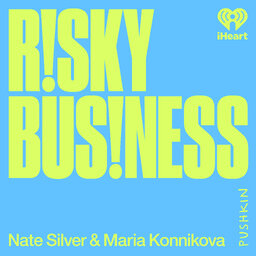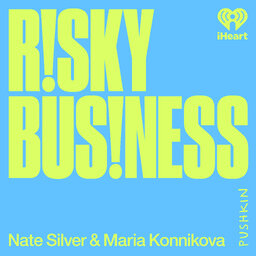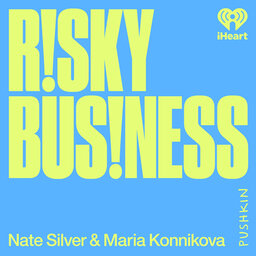Lessons from the Final Table
Welcome to Risky Business, a show about making better decisions.
Today, Maria has lessons from a poker tournament she recently played in Monte Carlo, where she made it to the final table. Then, Nate discusses what RFK Jr.’s impressive polling numbers could mean for Biden and Trump. And Nate and Maria discuss Caitlin Clark and what her story tells us – or doesn’t – about the gender pay gap.
Further Reading:
The Biggest Bluff by Maria Konnikova
On The Edge by Nate Silver (forthcoming)
"RFK Jr. Says Doctors Found a Dead Worm in His Brain" (NYT)
"What the conversation about Caitlin Clark’s pay gets wrong" (CNN)
For more from Nate and Maria, subscribe to their newsletters.
The Leap from Maria Konnikova
Silver Bulletin from Nate Silver
In 1 playlist(s)
Risky Business with Nate Silver and Maria Konnikova
Risky Business is a weekly podcast about making better decisions. The hosts, Maria Konnikova and Nat…Social links
Follow podcast
Recent clips

From The Kink Machine: The Hidden Business of Pleasure
31:30

Nate and Maria’s 2026 Predictions
37:18

Best of Risky Business: Life After Poker (with Vanessa Selbst)
42:44
 Risky Business with Nate Silver and Maria Konnikova
Risky Business with Nate Silver and Maria Konnikova